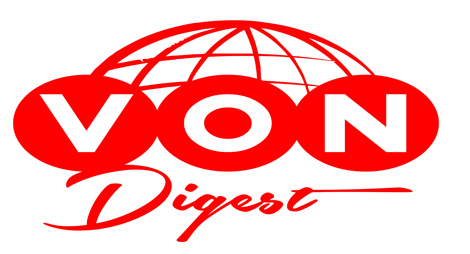Nigeria’s access to a $602.95m grant for 2025 from the United States Agency for International Development (USAID) is now uncertain, following a 90-day suspension of all agency programmes by President Donald Trump.
The fund freeze stems from an executive order signed by President Trump after his return to office in January 2025, directing a comprehensive review of US foreign assistance.
The review aims to assess the effectiveness of American aid programmes, with a focus on eliminating waste and ensuring funds align with US national interests.
With the aid freeze in place, funding for crucial sectors, particularly health, governance, economic development, and security, hangs in the balance.
The move has already disrupted multiple USAID-supported initiatives, with Nigeria among the countries facing uncertainty over planned allocations.
This comes as the Senate summoned intelligence chiefs to investigate allegations made by United States Congressman Perry Scott that USAID has been funding terrorist organisations, including Boko Haram.
Those summoned included the heads of the National Intelligence Agency, the Defence Intelligence Agency, the Department of State Services and the National Security Adviser, Nuhu Ribadu.
The resolution followed an Order of Urgent National Security raised under Order 41 by the lawmaker representing Borno South Senatorial District, Ali Ndume.
According to the proposed USAID budget for 2025, a staggering 89.27 per cent of the total $602.95m earmarked for Nigeria was designated for health-related programmes, highlighting the country’s heavy reliance on US support in the sector.
The largest share, $368m, was set aside for HIV/AIDS programmes under the Global Health Program, with $322m coming from GHP-State and $46m from GHP-USAID.
Other allocations included $22m for tuberculosis, $73m for malaria control, $33.25m for maternal and child health, and $22.5m for family planning and reproductive health.
However, funding for water supply and sanitation was set at just $2.5m, raising concerns about the accessibility of clean drinking water, especially in rural areas.
With USAID funding now frozen, the Nigerian government has taken emergency measures to cushion the impact, approving $200m to sustain healthcare services.
The Ministry of Finance confirmed that the funds would be directed towards essential vaccine procurement, antiretroviral drug distribution, and maternal health services, as fears grow over potential disruptions to critical health interventions.
Also, the Coordinating Minister of Health and Social Welfare, Ali Pate, said the Federal Government was planning to engage 28,000 health workers previously being paid under the USAID programme.
Pate said the government was ready to take ownership of the country’s healthcare sector amid the change in the policy of the US government.
The Federal Executive Council also approved an allocation of N4.5bn for the procurement of HIV treatment packs to support Nigerians living with HIV/AIDS.
Beyond health, democracy and governance initiatives in Nigeria had been allocated $7.5m in the USAID budget.
This covered funding for the rule of law, good governance, civil society engagement, and human rights programmes.
The suspension of the aid now casts doubt over whether these programmes will proceed as planned, particularly as the Trump administration reassessed its foreign policy commitments in Africa.
Among several sectors facing uncertainty is the peace and security category, with $7.6m earmarked for strengthening Nigeria’s security capabilities.
The proposed budget included $2.8m for conflict mitigation, $1m for military partnerships, and $3.05m for citizen security and law enforcement.
These allocations reflected US interest in stabilising Nigeria and countering terrorism threats from Boko Haram and Islamic State-West Africa Province in the northeast.
However, with funding now under review, there are concerns that any reductions could affect Nigeria’s ability to combat insecurity.
Also, economic growth programmes were due to receive $39.6m, the largest allocation outside the health sector.
Of this amount, $29.1m was earmarked for agriculture, while $1.5m was set aside for private sector productivity and $5m for clean energy projects.
These figures suggest a shift in US aid priorities towards economic sustainability and private sector engagement rather than direct humanitarian relief.
With USAID funding currently under review, the disbursement of these funds remains uncertain.
If the aid freeze extends beyond the initial 90-day review period, Nigeria may need to rely more on domestic revenue or seek increased support from other development partners like the World Bank and the African Development Bank.
The PUNCH earlier reported that USAID allocated approximately $2.8bn to Nigeria between 2022 and 2024, according to data from the United States Foreign Assistance Dashboard.
The platform serves as the primary source for budgetary and financial data from U.S. government agencies managing foreign assistance portfolios.
Amid the controversy, data from Financial Aid revealed that in 2024, the US agency disbursed a total of $41bn to no fewer than 206 countries, including Nigeria, which received $780m.
In 2023, USAID allocated $72bn to 209 countries, with $1bn disbursed to Nigeria. Similarly, in 2022, the agency released $74bn to fund 21,000 programmes in at least 212 countries, and Nigeria received $970m.
The aid suspension comes amid increasing scrutiny over US foreign assistance, with Congressman Perry alleging that some American aid funds had been misused or diverted to unintended channels, including possible links to terrorist financing.
In a video that went viral, Perry said, “Who gets some of that money? Does that name ring a bell to anybody in the room? Because your money, your money, $697m annually, plus the shipments of cash funds in Madrasas, ISIS, Al-Qaeda, Boko Haram, ISIS Khorasan, terrorist training camps. That’s what it’s funding.”
The US House Committee on Foreign Affairs has since launched an investigation into the management of USAID funds in Nigeria and other recipient countries.
If financial irregularities are found, the US could permanently reduce or redirect foreign assistance, placing further strain on Nigeria’s development efforts.
However, the United States Embassy in Nigeria reaffirmed its commitment to ensuring that US assistance is properly utilised, dismissing any concerns about its funds being diverted to terrorist groups.
In a statement released on its X handle on Tuesday, the mission stressed that “comprehensive monitoring and evaluation systems are in place to help verify that US assistance reaches intended recipients.”
The American government also strongly condemned the atrocities committed by Boko Haram and other extremist groups in Nigeria and across the region, stating, “The United States condemns the violence and blatant disregard for human life perpetrated by Boko Haram and other terrorist groups in Nigeria and the region.”
Speaking during Wednesday’s plenary, former Senate Chief Whip, Ndume, called for an investigation into the US lawmaker’s claims that the USAID funded Boko Haram, urging the Federal Government to conduct a probe to verify whether USAID funds had been used appropriately.
Ndume urged the Senate to take Perry’s revelation seriously, given the devastation caused by Boko Haram.
He emphasised that a thorough investigation would end speculation about how non-state actors have managed to survive over the years.
The motion was seconded for debate by Abdul Ningi (PDP, Bauchi-Central), a co-sponsor of the motion, who suggested that it should be amended to read that the security chiefs should first brief senators in a closed-door session.
“At this point, whatever is written here is germane. But it is almost impossible to do justice to the issues raised in this motion here.
“We do not need an elaborate debate on this issue; we need to be briefed by security agencies first in a closed-door session.
“Let’s take only one prayer-we invite the NSA, the DG, NIA, and DSS for a closed-door session with the Senate on this matter. The reason? This is their duty; that is what they are funded to do as their work.
“With the briefing by the security chiefs, we can take it up from there. Let’s do the work with some facts provided by these security chiefs at a closed-door session,” he said.
Ningi’s argument was adopted and passed by the Senate after Senate President Godswill Akpabio agreed that it was important to hear the views of the security heads in confidence.
He noted that the intelligence chiefs would provide the Senate with a clearer perspective in a private briefing.
In response to the alleged funding of Boko Haram by USAID, the Borno State government said it was awaiting the decision of the Federal Government on the next line of action.
Speaking with one of our correspondents, the Special Adviser to Governor Babagana Zulum, Brig Gen Abdullahi Ishaq (retd.), said the state government was not surprised by the allegation as the Chief of Defence Staff, Gen Christopher Musa, had mentioned some non-governmental organisations were financing the insurgency in the state.
“Have you listened to the interview of the Chief of Defence Staff on the attitudes of these NGOs? He was once here as a Theatre Commander and he has given a clue as to his experience when he was here.
“He said that they will say they are taking food somewhere and before you know it, they will say the vehicle broke down. All of a sudden, the trailer load becomes empty. The signs have always been there.”
Concerning the probe of the NGOs working with USAID, he said, “It is not a state government thing. They got permission from the Federal Government to operate here, which is why they operate in so many places in Nigeria and not Maiduguri alone.
“It is left for the Federal Government to decide. The decision will determine our stand. I just returned from a trip, so there is still some information I cannot authoritatively speak on currently,” he said.
















